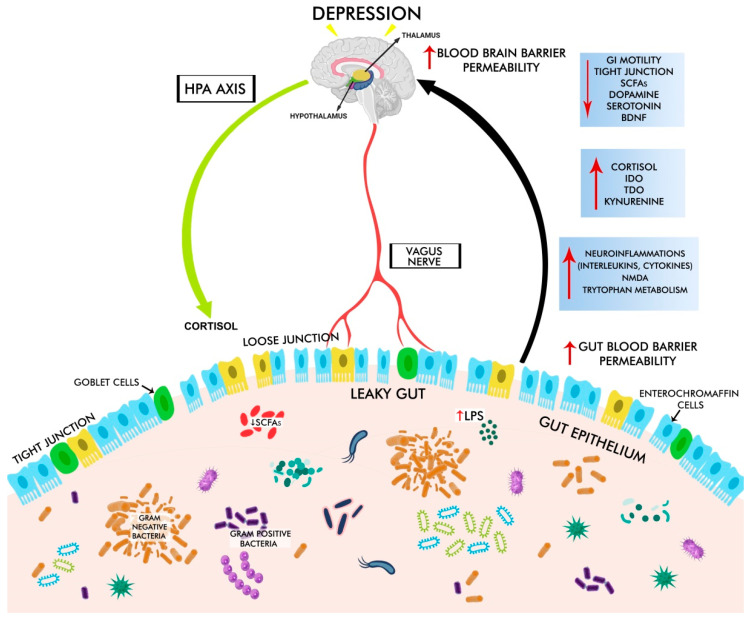Figure 1.
The gut–brain axis and depressive disorder. Gut dysbiosis increases intestinal barrier permeability, causing leaky gut with decreased levels of tight and adherent junction proteins, loss of goblet cells, increased lipopolysaccharide (LPS, an endotoxin derived from the Gram-negative bacterial cell wall), and increased blood–brain barrier permeability. These changes trigger the production of pro-inflammatory cytokines via HPA disruption and increased cortisol levels, which in turn leads to decreased levels of 5-HT and dopamine, BDNF, and IDO, TDO, kynurenine, resulting in depression.

